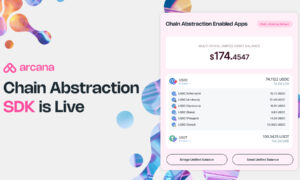Blockchain technology is changing the way we think about trust and openness in many industries. It started with Bitcoin and has grown into a powerful tool for improving transparency and efficiency in various fields. This article explores the journey of blockchain, its impact on trust and governance, and its potential to transform industries like supply chain management and construction.
Key Takeaways
- Blockchain started as a response to the trust issues following the 2008 financial crisis.
- It is not truly ‘trustless’ but rather a system that builds confidence among users.
- Governance in blockchain is essential for trust, requiring collaboration among many actors.
- Diversity in blockchain ecosystems can lead to better solutions and more equitable outcomes.
- The future of blockchain holds promise but also challenges, including security and the need for new governance models.
The Evolution of Blockchain Technology

From Bitcoin to Ethereum
Blockchain technology began with the launch of Bitcoin in 2009, marking the genesis phase of blockchain. This was a groundbreaking moment that introduced a new way to handle digital transactions without needing a central authority. Following Bitcoin, Ethereum emerged in 2015, expanding the possibilities of blockchain by allowing developers to create smart contracts and decentralized applications. This evolution has opened doors to various uses beyond just currency.
Key Innovations and Milestones
Over the years, several key innovations have shaped the blockchain landscape. The introduction of smart contracts, which are self-executing contracts with the terms directly written into code, has been a significant milestone. Additionally, the development of decentralized finance (DeFi) platforms has transformed how people think about banking and finance. These innovations have made blockchain more versatile and appealing to a broader audience.
The Role of Cryptographic Rules
Cryptography plays a crucial role in ensuring the security and integrity of blockchain networks. Each transaction is secured through complex mathematical algorithms, making it nearly impossible to alter past records. This reliance on cryptographic rules not only protects users but also builds trust in the system. As blockchain technology continues to evolve, these cryptographic principles will remain fundamental to its success and acceptance in various industries.
Governance and Trust in Blockchain Systems
Challenges of Blockchain Governance
Governance in blockchain is tricky. Unlike traditional systems, where a single authority makes decisions, blockchain relies on many different participants. This can lead to confusion and disagreements. When everyone has a say, it can be hard to reach a consensus. This challenge makes it essential to find a balance between freedom and control. The judicature-based paradigm of governance suggests that leaders should focus on fixing inequalities within the blockchain. This means that while everyone can participate, some rules must be in place to ensure fairness.
Trusting Distributed Networks
Trust is a big deal in blockchain. Many people think of blockchain as a "trustless" system, but that’s not entirely true. Instead, it’s more like a confidence machine. Users need to trust the technology and the people behind it. This trust comes from knowing that the system is built on strong cryptographic rules and that everyone involved is working towards the same goals. When users understand how the system works, they are more likely to feel confident in it.
Polycentric Governance Theory
Polycentric governance is a way to manage complex systems like blockchain. It suggests that multiple governing bodies can work together to create better rules and systems. This approach can help address the challenges of blockchain governance by allowing different groups to collaborate. By using this theory, blockchain can become more adaptable and responsive to the needs of its users. This way, the system can grow and change while still maintaining trust among its participants.
Blockchain in Supply Chain Management

Enhancing Transparency and Efficiency
Blockchain technology is changing how supply chains operate by making them more open and efficient. With a shared and unchangeable record, all parties involved can see the same information. This means that everyone, from suppliers to customers, can track products easily. When companies use blockchain, they can reduce delays and costs, making the delivery of goods faster and cheaper.
Case Studies of Blockchain Adoption
Many businesses are already using blockchain to improve their supply chains. For example, companies in industries like food and pharmaceuticals are using it to ensure that products are safe and authentic. By keeping a clear record of every step a product takes, they can quickly find out where something went wrong if there’s a problem. This not only helps in solving issues faster but also builds trust among partners and customers.
Overcoming Barriers to Implementation
Despite its benefits, there are challenges to using blockchain in supply chains. Companies need to work together and agree on how to use this technology. They must also ensure that only trusted partners can access the system to prevent errors and fraud. However, if these challenges are met, blockchain can lead to a more reliable and transparent supply chain, benefiting everyone involved.
Decentralization and Diversity in Blockchain Ecosystems
The Importance of Ecosystem Diversity
Decentralization is a key idea in blockchain technology. It means spreading out power and control instead of having it all in one place. This is important because it helps prevent any one group from having too much influence. A diverse ecosystem allows different voices and ideas to come together, making the system stronger and more adaptable. When many people can participate, it leads to better solutions that fit various needs.
Building Solutions with Users
Creating blockchain solutions should involve the people who will use them. This means listening to their needs and ideas. When developers work closely with users, they can build tools that truly help communities. This approach not only makes the technology more useful but also encourages a sense of ownership among users. When people feel included, they are more likely to trust and support the system.
Redistribution of Wealth and Power
One of the exciting possibilities of blockchain is the chance to change how wealth and power are shared. Currently, a small number of people hold most of the wealth in cryptocurrencies. For example, 97 percent of Bitcoin is owned by just 4 percent of investors. This concentration of wealth can lead to inequality. However, if blockchain is used wisely, it can help distribute resources more fairly. This could lead to a more just society where everyone has a say and a stake in the system. The challenge is to ensure that this redistribution happens in a way that truly benefits all participants, rather than just a select few.
Blockchain’s Impact on Various Industries
Transforming the Construction Industry
Blockchain technology is changing the way the construction industry operates. It helps improve trust and cooperation among different parties involved in a project. By using blockchain, everyone can see the same information, which reduces misunderstandings and delays. This technology also allows for better tracking of materials and payments, making the whole process smoother. As a result, enhanced transparency is achieved, which is crucial in a field where many people work together.
Advancements in Healthcare Technology
In healthcare, blockchain is making a big difference by ensuring that patient data is secure and easily accessible. This technology allows for better sharing of medical records among doctors and hospitals while keeping the information private. With blockchain, patients can have more control over their own data, leading to improved efficiency in treatment and care. This means that healthcare providers can make quicker decisions based on accurate information.
Blockchain in Financial Services
The financial services industry is also seeing the benefits of blockchain. It allows for faster and cheaper transactions, which is a game-changer for banks and customers alike. By using smart contracts, transactions can be automated, meaning they happen instantly when certain conditions are met. This not only speeds up processes but also reduces the chances of errors. Overall, blockchain is reshaping how money moves around the world, making it more accessible for everyone.
Future Prospects and Challenges of Blockchain
Achieving Mass Adoption
The future of blockchain technology is bright, but getting everyone on board is a big task. Many people still don’t understand how it works or why it’s important. To make it easier for everyone, we need to share knowledge and show real-life examples of how blockchain can help. This will help build trust in distributed networks and encourage more people to use it.
Addressing Data Security Concerns
As blockchain grows, so do worries about keeping data safe. Even though blockchain is known for its security, there are still risks, especially with smart contracts and private keys. It’s crucial to find ways to make these systems even safer. By focusing on the role of cryptographic rules, we can help protect users and their information.
The Potential for New Governance Models
Blockchain could change how we think about rules and leadership. Traditional systems often have a few people making decisions, but blockchain allows for more voices to be heard. This idea of polycentric governance theory can lead to fairer and more inclusive decision-making. As we explore these new models, we can create systems that work better for everyone, not just a select few.
Conclusion
In conclusion, blockchain technology is changing how we think about trust and openness in various industries. It offers a new way to share information that is clear and safe, helping to build confidence among users. While there are still challenges to overcome, like making sure everyone can use it and that it works well, the potential benefits are huge. By working together and including more voices in the conversation, we can create a future where blockchain helps everyone, not just a few. This technology can lead us to a more fair and open world, where trust is built through shared knowledge and cooperation.



































